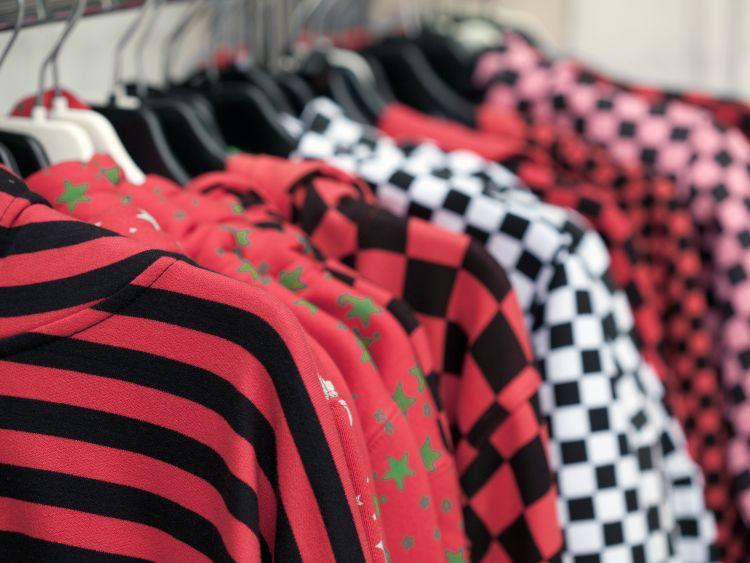Lolita Fashion
Lolita fashion isn’t just clothing—it’s an entire lifestyle for those passionate about a unique and whimsical approach to style. Originating in Japan, Lolita fashion has captivated hearts worldwide, blending historical elegance with a sense of playfulness and, at times, rebellion. Known for its elaborate dresses, lace, and petticoats, Lolita fashion transforms everyday wear into something that feels straight out of a storybook.
This style attracts those who dare to express their individuality, as Lolita’s aesthetic contrasts sharply with modern fashion trends. So, what exactly defines Lolita fashion, and how has it gained such an enduring following?
The Origins and Evolution of Lolita Fashion
Lolita fashion emerged in Japan during the 1970s, gaining popularity in the Harajuku district of Tokyo. This neighborhood, famous for its avant-garde street style, quickly became a hub for alternative fashion enthusiasts. Lolita, inspired by Victorian and Rococo styles, gave people an outlet for creativity while allowing them to escape from the mundane. By the late 1990s and early 2000s, Lolita fashion had spread internationally, becoming a symbol of self-expression and elegance.
Key Influences on Lolita Fashion
- Victorian Era: Corsets, high-neck blouses, and intricate lace detailing mirror the elegance of Victorian fashion.
- Rococo: This influence can be seen in Lolita’s pastel color palettes, floral patterns, and frills.
- Gothic Subculture: Darker tones and more dramatic styles within Lolita (like Gothic Lolita) draw inspiration from Western goth styles, incorporating lace, black fabric, and crosses.
Over the years, Lolita has developed distinct substyles, each adding its own flavor to the core aesthetic. Let’s break down some of these iconic styles.
Popular Lolita Fashion Styles
1. Sweet Lolita
Sweet Lolita, as the name suggests, is all about sugary colors, cute motifs, and an overall innocent look. Think pastel pinks, blues, and yellows, often adorned with motifs like hearts, ribbons, and candy. Dresses are generally decorated with bows, frills, and lace, giving this style a charming and playful feel.
2. Gothic Lolita
For those who prefer a darker twist, Gothic Lolita combines the elegance of Lolita fashion with gothic elements. This style often features black, deep red, or purple dresses with lace accents and dark themes. Gothic Lolita accessories frequently include crosses, skulls, and even miniature coffin bags.
3. Classic Lolita
Classic Lolita is more subdued compared to Sweet or Gothic styles, drawing on vintage elegance. Outfits in this style often feature muted colors, floral prints, and more sophisticated silhouettes. Classic Lolita focuses on refinement, making it one of the most accessible Lolita styles for newcomers.
4. Punk Lolita
Punk Lolita blends rebellious punk elements with Lolita’s structured, feminine look. This style might include plaid patterns, chains, safety pins, and boots, challenging traditional Lolita norms while still honoring the essence of the fashion.
5. Country Lolita
Inspired by countryside aesthetics, Country Lolita incorporates straw hats, gingham patterns, and nature-inspired accessories. It’s a perfect blend of sweet and classic styles, offering a more relaxed yet charming look.
Essential Elements of Lolita Fashion
Petticoats and Skirts
The silhouette is key to Lolita fashion. Petticoats create the famous cupcake or bell shape that defines a Lolita dress. Layering petticoats can add even more volume, creating a whimsical and dramatic effect.
Blouses and Dresses
Lolita outfits typically include high-collared blouses with lace accents, often worn under jumpers or dresses. Dresses are usually knee-length and feature intricate detailing, such as bows, lace, and embroidery.
Accessories
From bonnets and headbands to lace gloves and knee-high socks, accessories are crucial in Lolita fashion. They help complete the look, adding another layer of detail and charm. Handbags often mimic the shapes of books, coffins, or hearts, enhancing the overall aesthetic.
Footwear
Lolita footwear varies by style. Mary Janes, platform heels, and Victorian-inspired boots are all popular choices. Gothic Lolita often includes black lace-up boots, while Sweet Lolita might lean toward pastel-colored heels or platform shoes.
How to Style Lolita Fashion: Tips for Beginners
Transitioning into Lolita fashion can feel overwhelming, but breaking it down into manageable steps makes it more accessible. Here are some tips to get started:
- Start Simple: Begin with one style, like Sweet or Classic Lolita, before experimenting with other substyles.
- Invest in Basics: A good-quality petticoat, a versatile blouse, and a pair of Lolita-style shoes form a solid foundation.
- Shop from Reputable Brands: Lolita brands like Angelic Pretty, Baby, the Stars Shine Bright, and Metamorphose are known for their high-quality pieces.
- Accessorize Thoughtfully: Don’t overdo it. Pick a few key accessories that complement your outfit without overwhelming it.
- Practice Hair and Makeup: Lolita makeup is typically natural, focusing on a soft look that enhances the outfit. Try soft curls or braids for hairstyles.
Why People Love Lolita Fashion
Lolita fashion allows individuals to escape into a world that feels timeless and magical. Unlike fast fashion, Lolita celebrates individuality and craftsmanship, as each outfit is carefully put together. Additionally, the Lolita community provides a supportive space for people to connect over shared interests and aesthetics. Whether attending a tea party meetup or a fashion show, Lolita fans find camaraderie and acceptance among fellow enthusiasts.
FAQs About Lolita Fashion
What is the main difference between Sweet Lolita and Gothic Lolita?
Sweet Lolita focuses on pastel colors and cute motifs, while Gothic Lolita leans towards darker themes, with black, deep reds, and gothic accessories like crosses and lace.
Is Lolita fashion only for women?
No! Lolita fashion is for anyone who appreciates the style. Men can also participate by wearing Kodona or Ouji fashion, which offers a more masculine spin on the Lolita aesthetic.
Do I need to follow strict guidelines to be considered a Lolita?
Not necessarily. While there are general guidelines to achieve the look, Lolita fashion is all about self-expression. As long as the outfit aligns with the core elements, you’re free to add your personal flair.
Where can I buy authentic Lolita clothing?
Brands like Angelic Pretty, Baby, the Stars Shine Bright, and Metamorphose are highly regarded in the Lolita community. Secondhand sites and Lolita-specific marketplaces are also popular for finding authentic pieces.
How much does a Lolita outfit cost?
Lolita fashion can be pricey, with some dresses costing several hundred dollars. However, there are affordable options available, especially in secondhand marketplaces. Quality is key, as Lolita pieces are often investments.
Conclusion: Embracing the Magic of Lolita Fashion
Lolita fashion is more than just clothing—it’s an experience, a community, and a way to bring a little bit of fantasy into daily life. With its roots in historical styles and a focus on intricate details, Lolita fashion allows people to express their creativity and individuality. Whether you’re drawn to the sweetness of pastels or the drama of gothic elements, Lolita has something for everyone.
For those who are intrigued by this enchanting world, Lolita fashion offers a sense of belonging and an opportunity to dress with imagination and heart.
Authoritative Links
- Angelic Pretty: www.angelicpretty.com
- Baby, the Stars Shine Bright: www.babyssb.co.jp
- Metamorphose: www.metamorphose.gr.jp
- Lolita Fashion Wiki: en.wikipedia.org/wiki/Lolita_fashion







